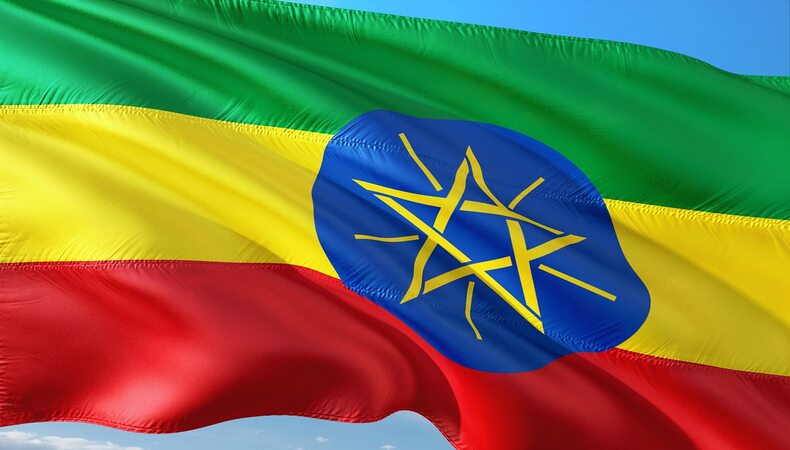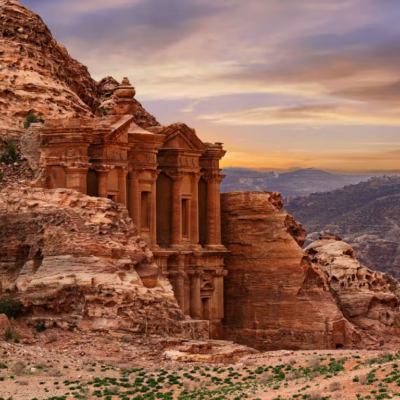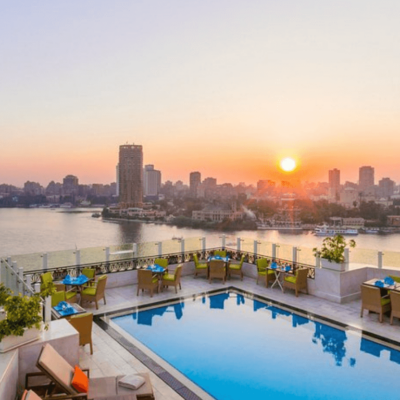Egypt’s Tensions with Ethiopia Over GERD Escalate as Cairo Threatens Action

Egypt has formally appealed to the United Nations Security Council, warning over Ethiopia’s ongoing construction and filling of the Grand Ethiopian Renaissance Dam (GERD), hence increasing long-standing tensions. This action highlights Egypt’s rising concerns about what it regards to be Ethiopia’s unilateral actions, which Cairo feels will endanger its essential water supply.
In a statement on Sunday, September 1, 2024, Egyptian Foreign Minister Badr Abdel Atty said he had angrily sent a letter to the UN Security Council angrily opposing Ethiopia’s decision to proceed with reservoir filling without reaching a legally enforceable agreement with downstream countries, especially Egypt. The letter argues that Ethiopian actions directly jeopardize regional peace and contravene international law.
Constant Issues of Egypt
Believing the GERD will significantly reduce the flow of the Nile River, a vital resource for the 120 million people living in Egypt, the country has voiced concerns about the construction of the project for more than 10 years. The Nile provides almost all of Egypt’s freshwater for domestic consumption, industry, and agriculture. Long contended by the country is that any significant alteration in the river’s flow could have negative consequences, especially for its agricultural sector, which depends primarily on it for irrigation.
The largest $4.2 billion GERD hydroelectric plant in Africa stands 1.8 kilometers long and 145 meters high. Once functioning at full capacity, it should provide more than 5,000 megawatts of electricity, doubling Ethiopia’s current output of power. Ethiopia argues that the dam is absolutely essential for its development since approximately 60% of its population lack access to electricity presently. Ethiopia’s aspirations for a regional power hub center also on the dam as a pillar.
Escalation Within Diplomatic Deadlock
The letter Egypt addresses to the UN Security Council marks a turning point in the present war. The letter captures Cairo’s growing discontent with what she sees as Ethiopia’s intransigence, even if it does not substantially differ from Egypt’s official approach. Believing it necessary to protect its basic interests, the Egyptian government has repeatedly insisted on a legally enforceable agreement on the dam’s filling and operations.
Though years of negotiations—directly as well as under the authority of international bodies like the African Union—have not yielded an acceptable result. In his letter, Abdel Atty highlighted that Egypt has “exhausted all amicable means” to solve the issue including repeated Security Council requests. Ethiopia’s continuous actions, he claimed, have left Cairo with little choice except “defend and protect the rights and interests of the Egyptian people,” maybe suggesting a turn toward a more confrontational stance.
Although the letter does not precisely describe what Egypt might do, its tone suggests Cairo is prepared to escalate the situation as required.
Military Maneuvering and Strategic Posturing
The letter arrives at a time when tensions between Ethiopia and Egypt are already somewhat high. Egypt has just sent over 1,000 commandos and heavy equipment to Somalia, a country bordered by Ethiopia, increasing its military participation in the region. Signed earlier this year, Egypt and Somalia have a bigger bilateral defense agreement including this military build-up.
Especially in view of Egypt’s earlier claims that it would use force to block Ethiopia from completing the dam, the deployment has raised concerns regarding a possible military conflict. Egypt’s military posture is said to be a direct response to Ethiopia’s latest declaration of running more turbines and finishing the fifth stage of the reservoir filling of the dam.
Cairo reacted violently when Ethiopian Prime Minister Abiy Ahmed announced this on August 26, 2024. Time and time again, Egyptian officials have warned that such unilateral actions would force them to revert to military force to protect their water rights. In his letter, Abdel Atty accused Ethiopia of presenting an external threat using the GERD as a tool for internal support mobilization. Ethiopia’s operations, he added, are aimed to deflect attention from its “unlawful policy” of using common water resources, which has damaged neighbors in other river basins including the Omo, Jubba, and Shabelle rivers.
Local and worldwide consequences
Rising tensions between Egypt and Ethiopia over the GERD have significant effects on regional stability in the Horn of Africa, a territory already plagued with political turmoil. Since Somalia bears the risk of bringing other regional players into the crisis, its military pact with Egypt adds still another degree of complexity to the problem. Ethiopia, for its part, has warned that it would not stand by while other countries carry out actions it considers as sacrifices of national security.
Reacting to Egypt’s military involvement in Somalia, this warning pointed up Addis Ababa’s attentive observation of developments and preparedness to respond should need. The prospect of a military conflict over the GERD has driven proposals for new diplomatic projects meant to prevent a big war. However, the fall-off of past negotiations has left many observers unsure about the prospects for a peaceful ending.
Complicating matters even more is Ethiopia’s recent agreement to lease a portion of the Red Sea coast for military purposes from Somaliland, a breakaway state of Somalia. Cairo saw this as direct affront to its regional interests.
The Part Played by the World Community
Rising tensions demand stronger international community pressure on behavior. Egypt has petitioned the United Nations Security Council multiple times over the years; now, it could be requested to arbitrate the crisis once more. Still, the Council’s performance throughout this crisis is dubious and it has not yet been able to come with a long-term fix.
Although the African Union has also taken part in the mediation process, its efforts have similarly been in vain and have produced hardly a legally enforceable agreement. Global powers with strategic interests in the region like China and the United States could perhaps influence the outcome of the war.
Though their involvement has been minimal, there are concerns that the problem would spiral out of control outside of diplomatic boundaries.
To sum up: A Trip Ahead Danger
The controversy arising over the GERD is among the most serious threats to peace in the Horn of Africa in recent times. Ethiopia is resolute to complete its dam project, and Egypt announces her preparedness to carry out drastic measures to safeguard her water rights, hence the likelihood of violence is stronger than it has been. Egypt’s military activities in the region and its appeal to the UN Security Council attest to Cairo’s preparedness for every last option, including military action.
Ethiopia’s continuous progress on the project also emphasizes its commitment to assert its rights over the Nile waters in face of probable regional instability. As the whole society watches with increasing concern, the demand for effective mediation and a peaceful resolution of the conflict becomes increasingly urgent.
Not only for Egypt and Ethiopia but also for the whole region and beyond; the stakes are really strong. Without a conscious endeavor to defuse the situation, the Horn of Africa may be near a disastrous conflict with broad consequences on world security.




